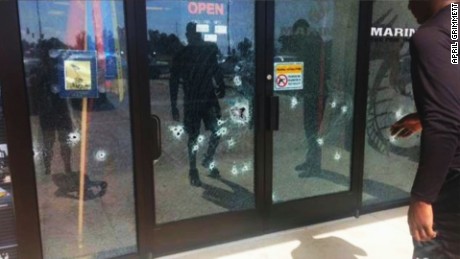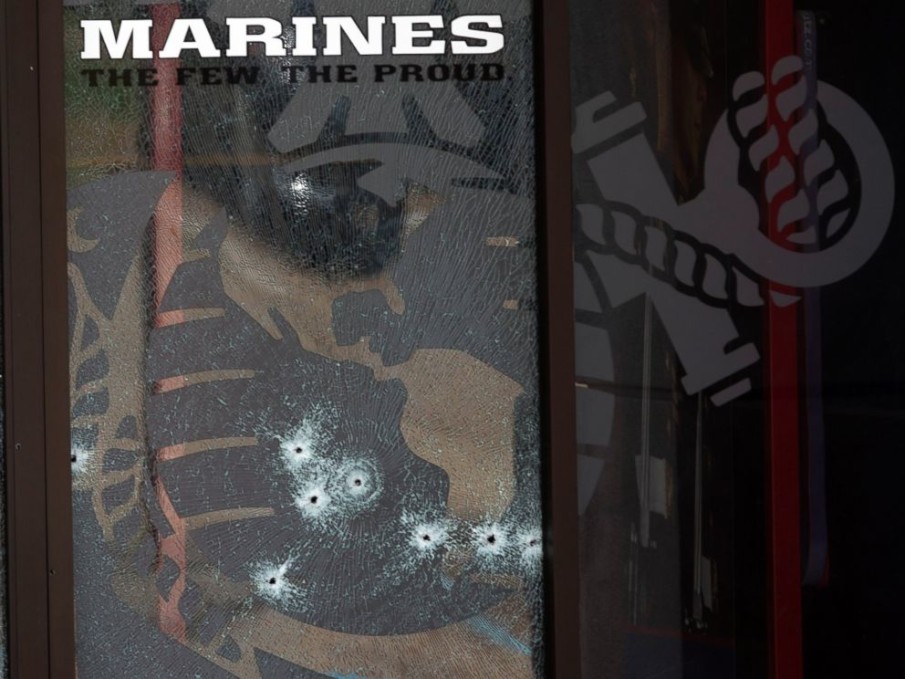It looks very much like the shooting of four Marines at the Navy Marine Corps Reserve Center in Chattanooga, Tennessee on July 16 was motivated by radical Islam. The shooter, Mohammod Yousef Abdulazeez, reportedly posted on his short-lived blog on Islam two posts referring to preparing for death through Islam. He praised the Sahaba (the followers of Muhammed) for waging jihad. (The blog has since been taken down.)
A Tweet associated with ISIS appeared to some to point to a connection with the Syrian/Iraqi jihadist army, and several news outlets ran with the connection before it became evident that the Tweet had actually been posted three hours after the shooting. There is presently no evidence of any direct link between Abulazeez and ISIS. Undoubtedly, ISIS would love to claim credit; they are very, very good at information operations. It would only build their legend further.
But that is the nature of modern, open-source warfare. There might be a connection, there might not. Converging methods and interests. It may be discovered (though it will probably always be a matter of guesswork, as Abdulazeez is dead) that he was, in fact, inspired to conduct the attack by way of ISIS propaganda. But there doesn’t have to be a direct chain of command, and there probably isn’t. All that is needed is motivation and means. And the reality of modern globalization means that there is no shortage of motivation.
There are those who are saying that this is another reason why ISIS has to be destroyed. I’m not objecting to the head-choppers getting slaughtered wholesale. But it won’t end the problem. It’s far, far too late for that.
Even if ISIS disappeared tomorrow, it is by no means the only jihadist organization out there. They are not the first, and they won’t be the last. ISIS may have eclipsed al-Qaeda (at least in the Western imagination) for power and savagery, but AQ is still out there. So is Hezbollah. Tomorrow there will probably be a new group that wasn’t happy with how hardcore the last one was. Jihad, like many ideologies, is a hydra. Destroy one group, two more crop up in its place. The more you try to find the one HVT whose death or capture will bring down the whole monster, the more decentralized the foe becomes.
And apart from the organized terrorist groups, there are small groups or singletons who become “inspired” by the religious hate of a radical mullah or imam, or simply by the propaganda videos that have swamped the Internet for the last decade and a half. How is that going to be fixed? Ban Islam? Religions tend to become more entrenched when persecuted. Censor the Internet? Welcome to the Deep Web, where you can find all sorts of illegal stuff, up to and including classified ads for assassinations. There is no practical way, in the modern world (or during any period, for that matter), to prevent every violent incident. Can’t be done.
It can even be argued that in trying to do so, the target society actually becomes more vulnerable. Take a look at this photo from CNN:

What’s that on the door, framed by bullet holes? It’s a “No Firearms” sign. That did a whole lot of good, didn’t it?
There is a saying that cropped up a little over a decade ago, in Iraq. “America is not at war. The Marine Corps is at war. America is at the mall.” While that saying can easily be twisted into a spectacular display of self-righteousness and entitlement, like most such platitudes it contains a grain of truth. As a society, we have relied on centralization and specialization to foist off responsibility on others. It is law enforcement’s job to protect us. But law enforcement can’t be everywhere. The defenders have to be lucky all the time. The bad guys only have to be lucky once.
The solution to fighting a decentralized enemy is not to tighten up the centralized controls. In John Robb’s words from “Brave New War,” the more monolithic and centralized an organization or society is, the more brittle it is. The slower the reaction time becomes. Unarmed civilians (or military in garrison) become defenseless targets.
Already have an account? Sign In
Two ways to continue to read this article.
Subscribe
$1.99
every 4 weeks
- Unlimited access to all articles
- Support independent journalism
- Ad-free reading experience
Subscribe Now
Recurring Monthly. Cancel Anytime.
While some of this piece may come across as being in the vein of the far left’s platitudes to the effect of “just get used to it, like Europe has” concerning terrorism shortly after 9/11, such is not the case. Yes, we have to come to terms with the fact that violence, whether criminal or ideological (or both) can occur at any time or any place. As a society, we have to become more resilient. This means that ordinary citizens will have to step up and take more responsibility for the defense of their homes and communities.
Yes, I said “responsibility.” Too often, everything is couched in terms of “rights,” including the “right of self-defense.” I’m not denying that any such right exists; in fact, I emphatically believe that it does. But if a society is to endure, there has to be a balance of rights and responsibilities, and particularly in an age of open-source warfare, the responsibility of defense falls on everyone.
Featured image courtesy ABC











COMMENTS